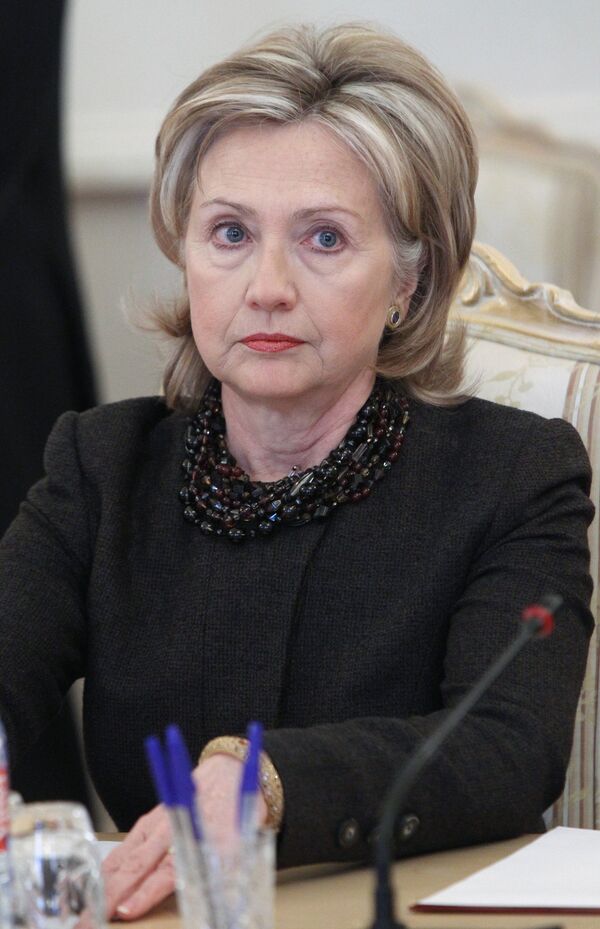Embattled Libyan leader Muammar Gaddafi's days in power are "numbered," U.S. Secretary of State Hillary Clinton said after talks with Russian Foreign Minister Sergei Lavrov in Washington on Wednesday.
"We are still getting contradictory signals from Colonel Gaddafi's camp," Clinton said. The Libyan leader "has yet to meet the red lines that are set by the international community to cease violence against his people, withdraw his forces and step down from power," Clinton said.
French Foreign Minister Alain Juppe said on Wednesday that Gaddafi was "sending messengers" to Western capitals offering to discuss his exit from power, although those "contacts" were far from negotiations "proper at this stage."
"So although neither of us can predict to you the exact day or hour that Gaddafi will leave power, we do understand and agree that his days are numbered," Clinton said.
The United States will continue cooperate with Russia and other countries to force Gaddafi to step down and pave the way for democratic reforms in the North African country, Clinton said.
"The foreign minister and I discussed at length and compared notes today on our respective diplomacy with the TNC [Libya's rebel Transitional National Council], and we very much appreciate the diplomatic work that Russia is doing through its special envoy," she said.
Lavrov said differences existed between Russia and the United States in evaluating the implementation of a UN resolution authorizing military action in Libya, although they were fewer than with "certain European countries."
"But we are united in [understanding] that we should launch political process in Libya as soon as possible, and we are working through various channels - official and unofficial - on creating conditions [for this]," the minister said.
Moscow has repeatedly criticized NATO for going beyond the bounds of the UN resolution and bombing "civilian facilities" in Libya, including Gaddafi's compounds in Tripoli. The alliance has denied that its airstrikes are targeting the Libyan leader, saying that his compounds are used as command centers for attacks against civilians.
Russia has also warned the alliance against siding with rebels following reports about arms supplies to Libyan insurgents by some of the NATO members involved in the operation, particularly France.
Lavrov said last week that the military conflict in Libya had reached a stalemate and that the cost of the conflict in human terms was "high."
Russia, who abstained from a vote on the UN resolution on Libya in March, has advocated the African Union's leading role in mediating talks between pro- and anti-Gaddafi forces, while Medvedev has also sent his envoy Mikhail Margelov to Libya to discuss ways out of the crisis with both Gaddafi and representatives of the rebel council.


